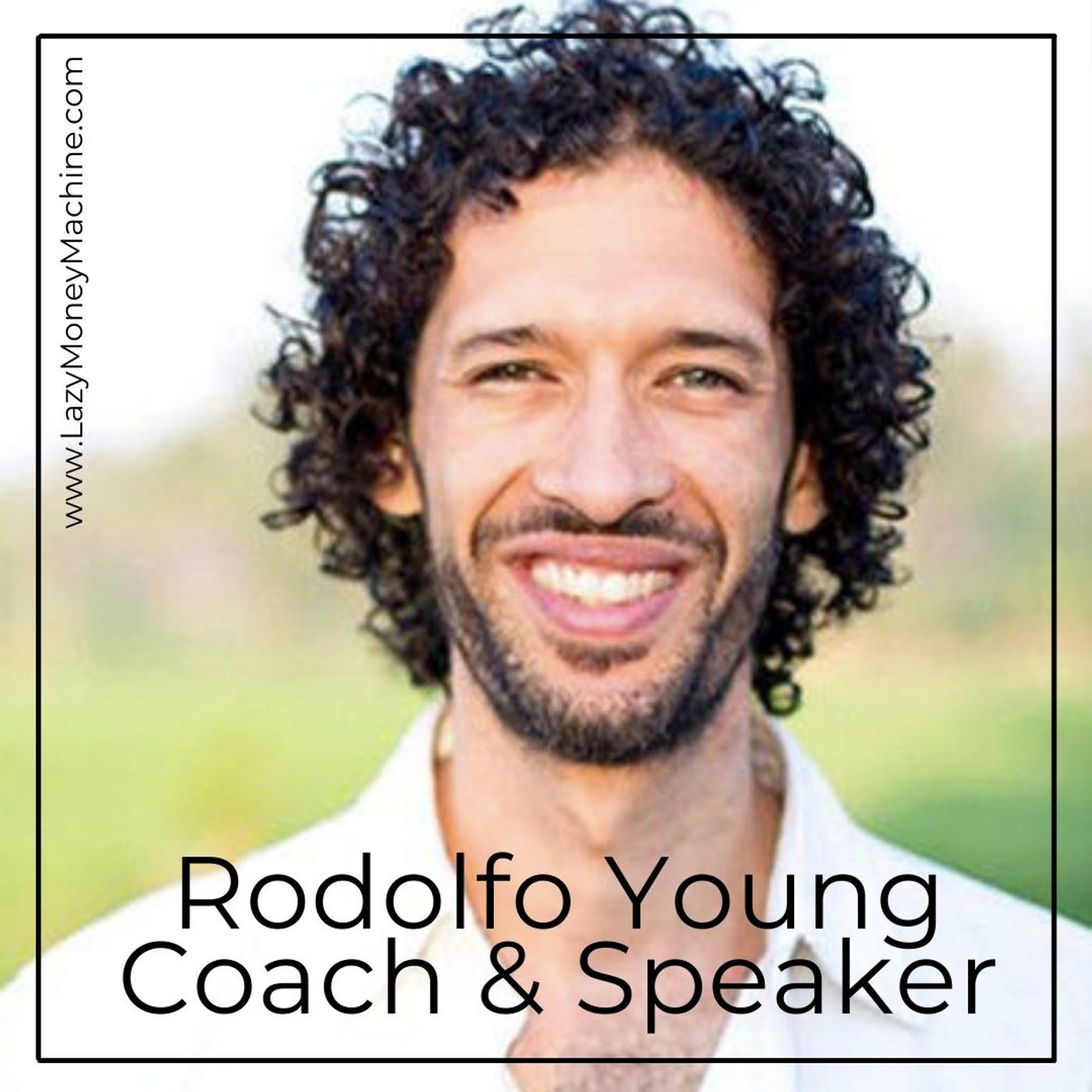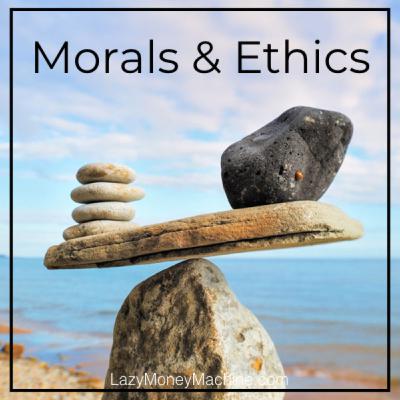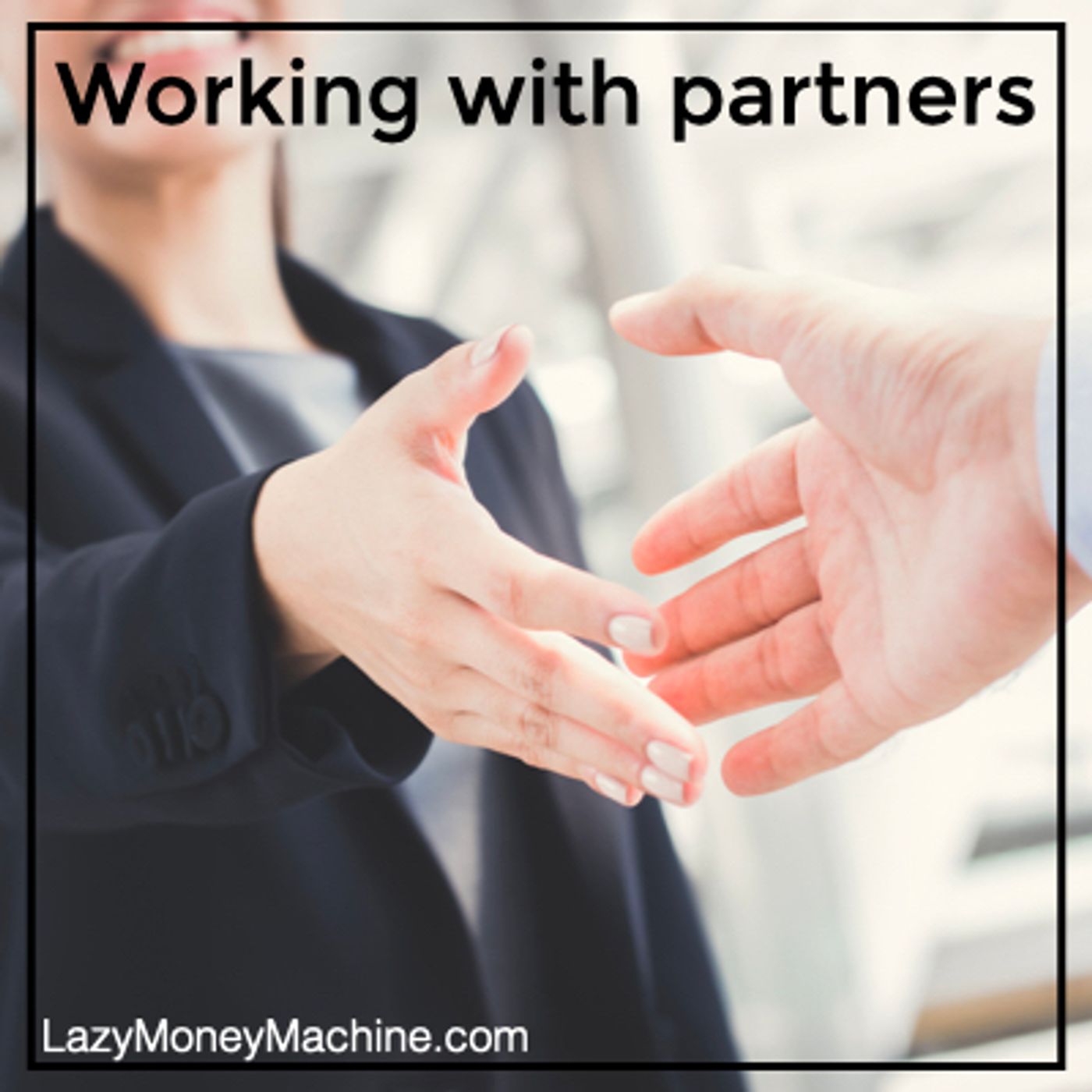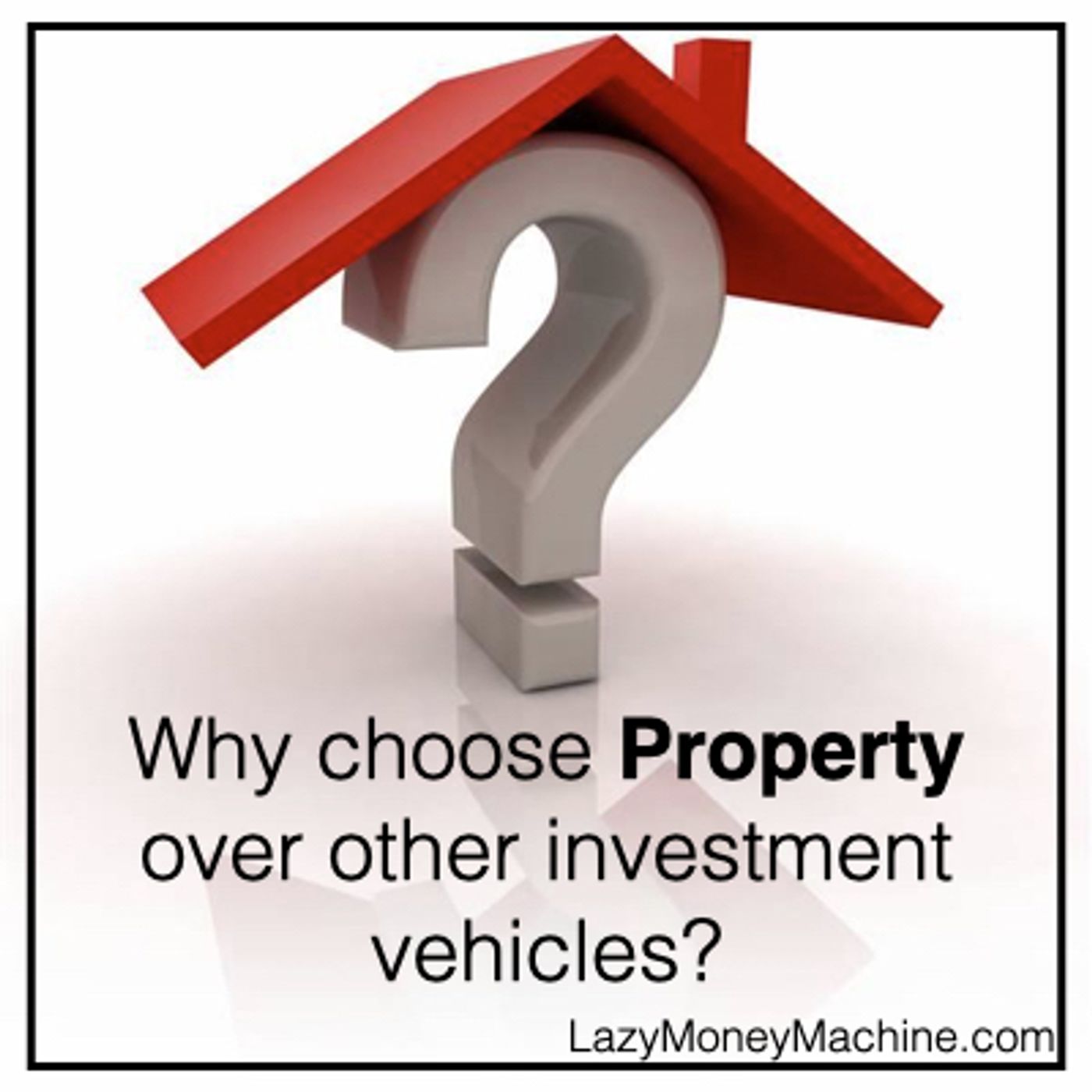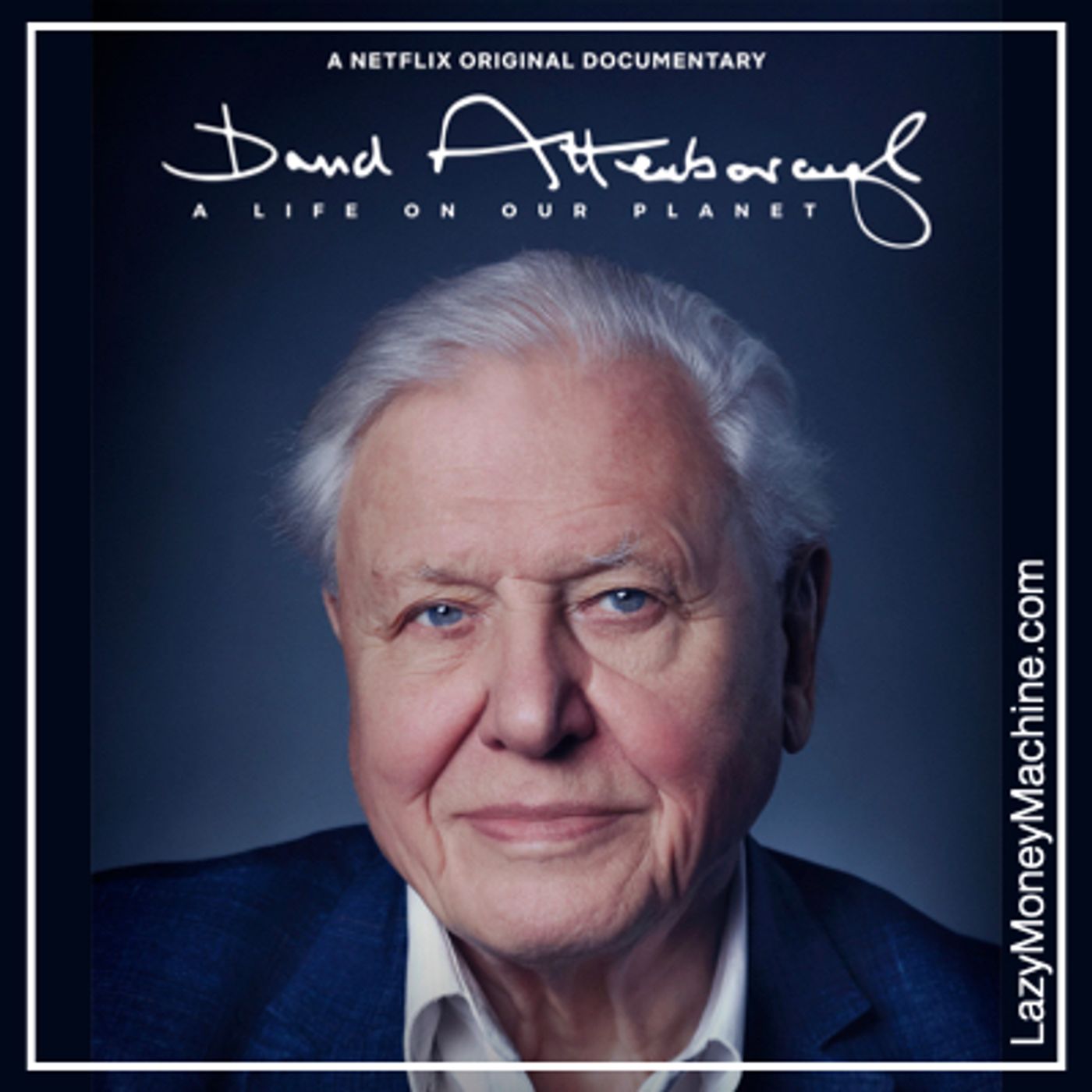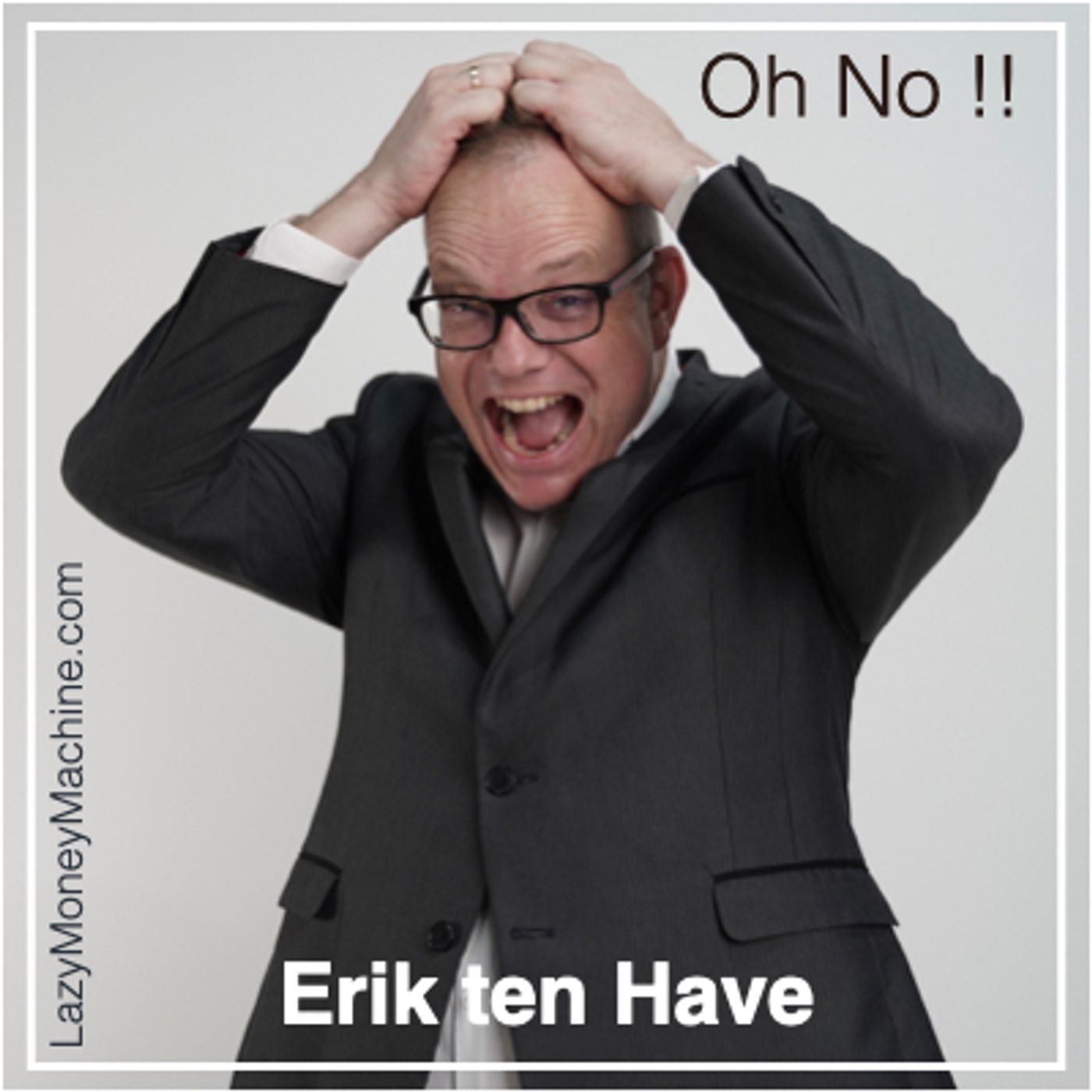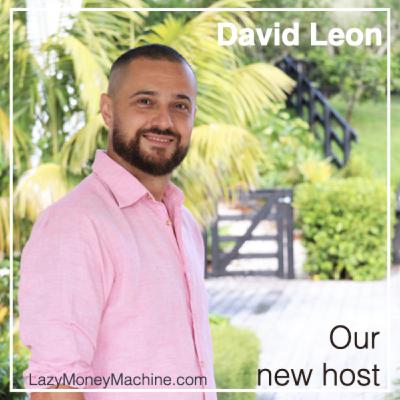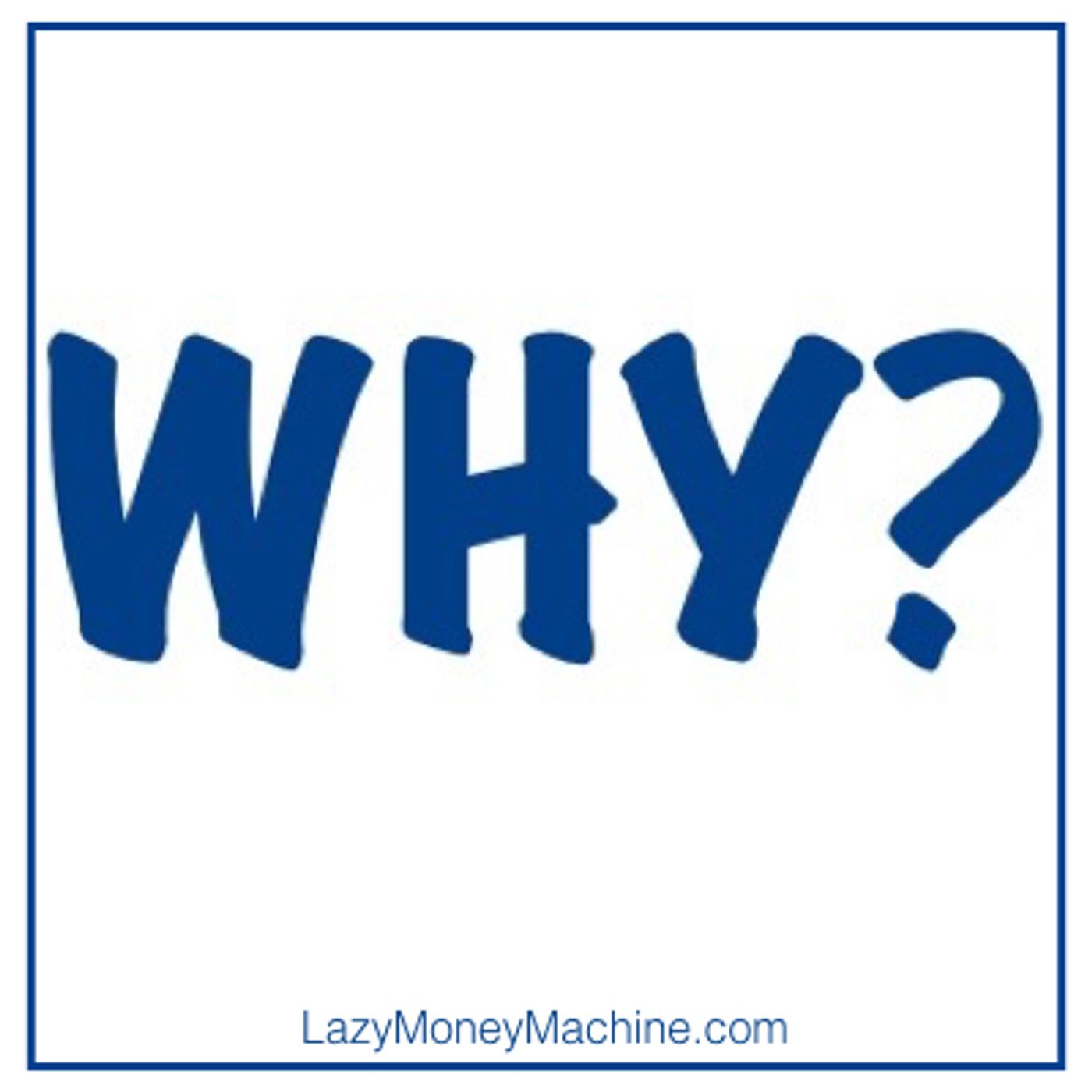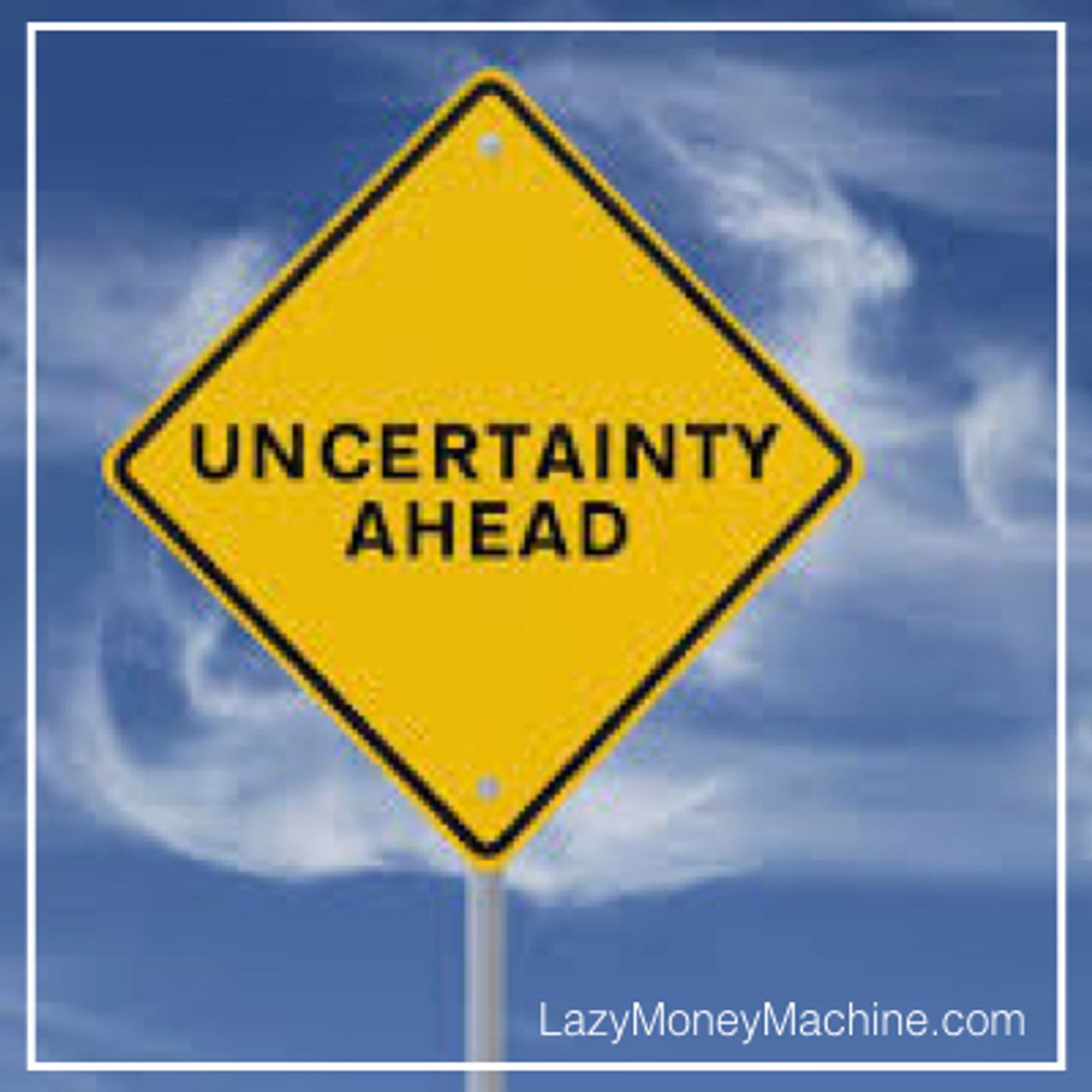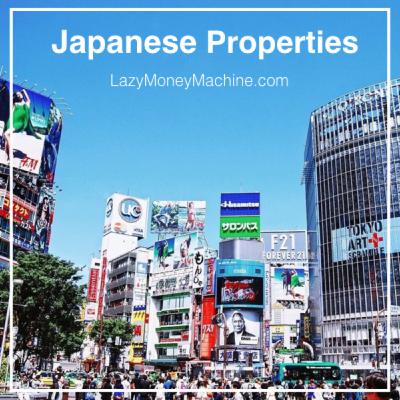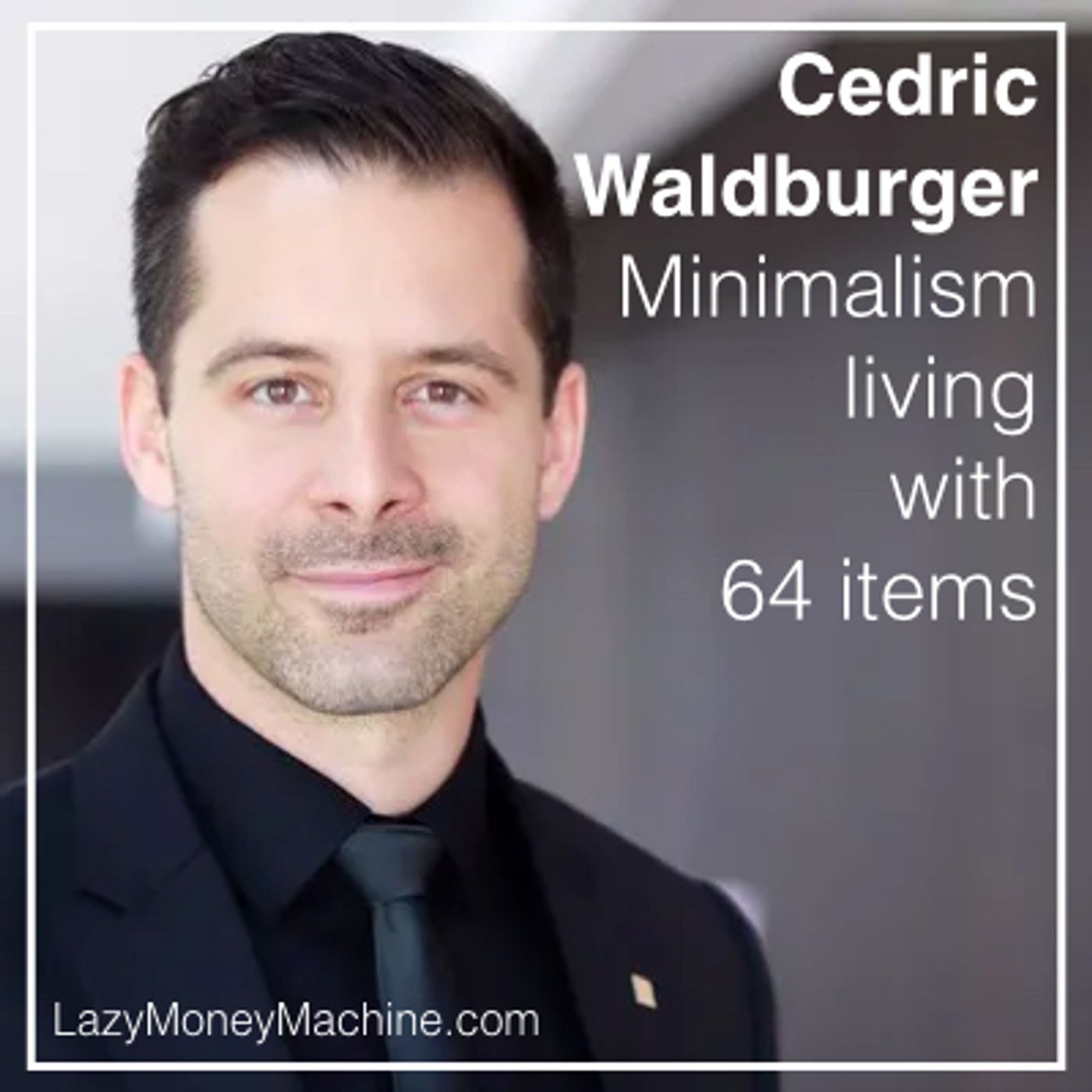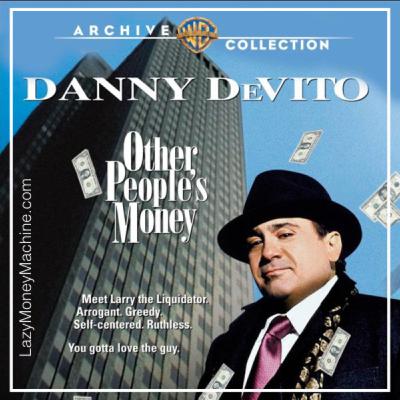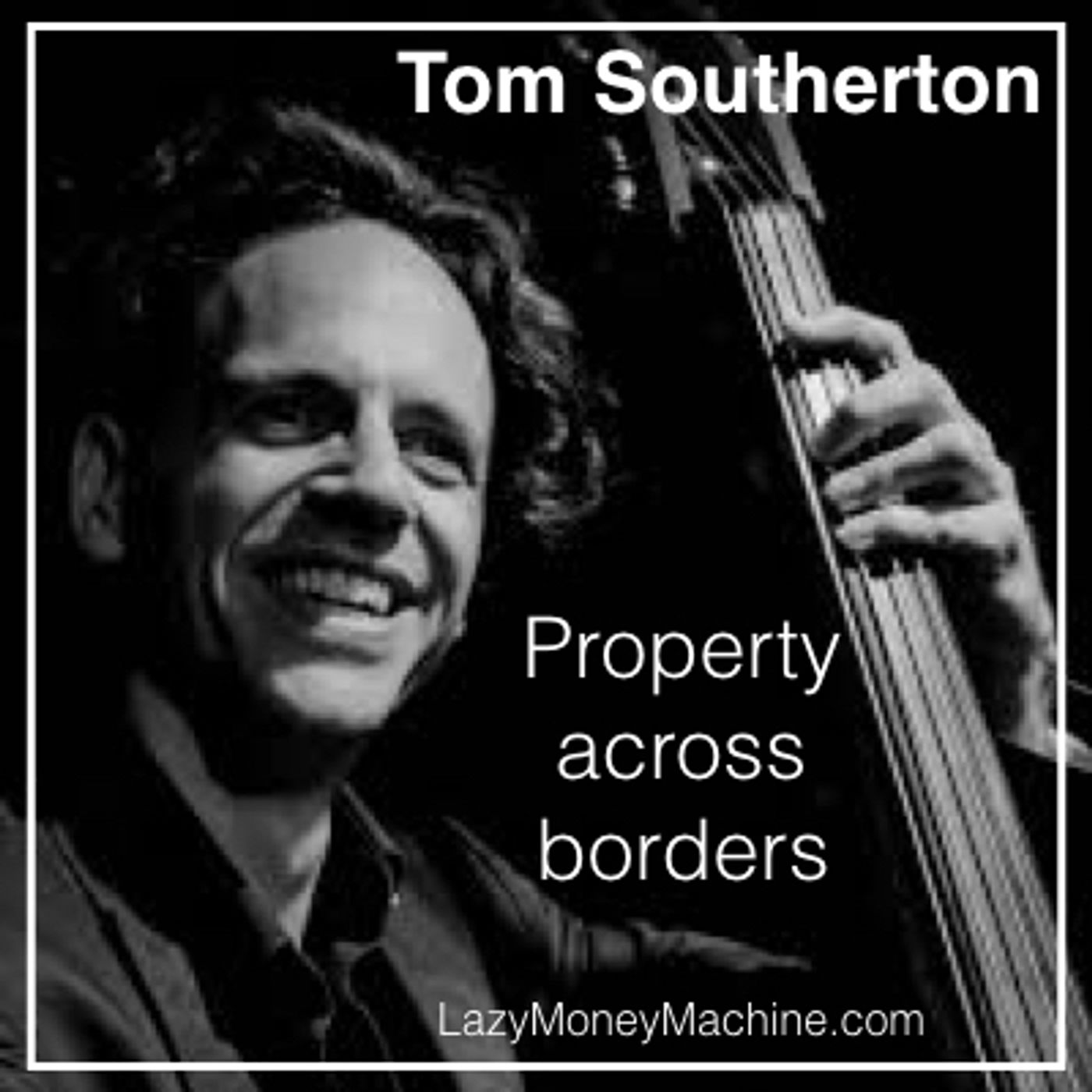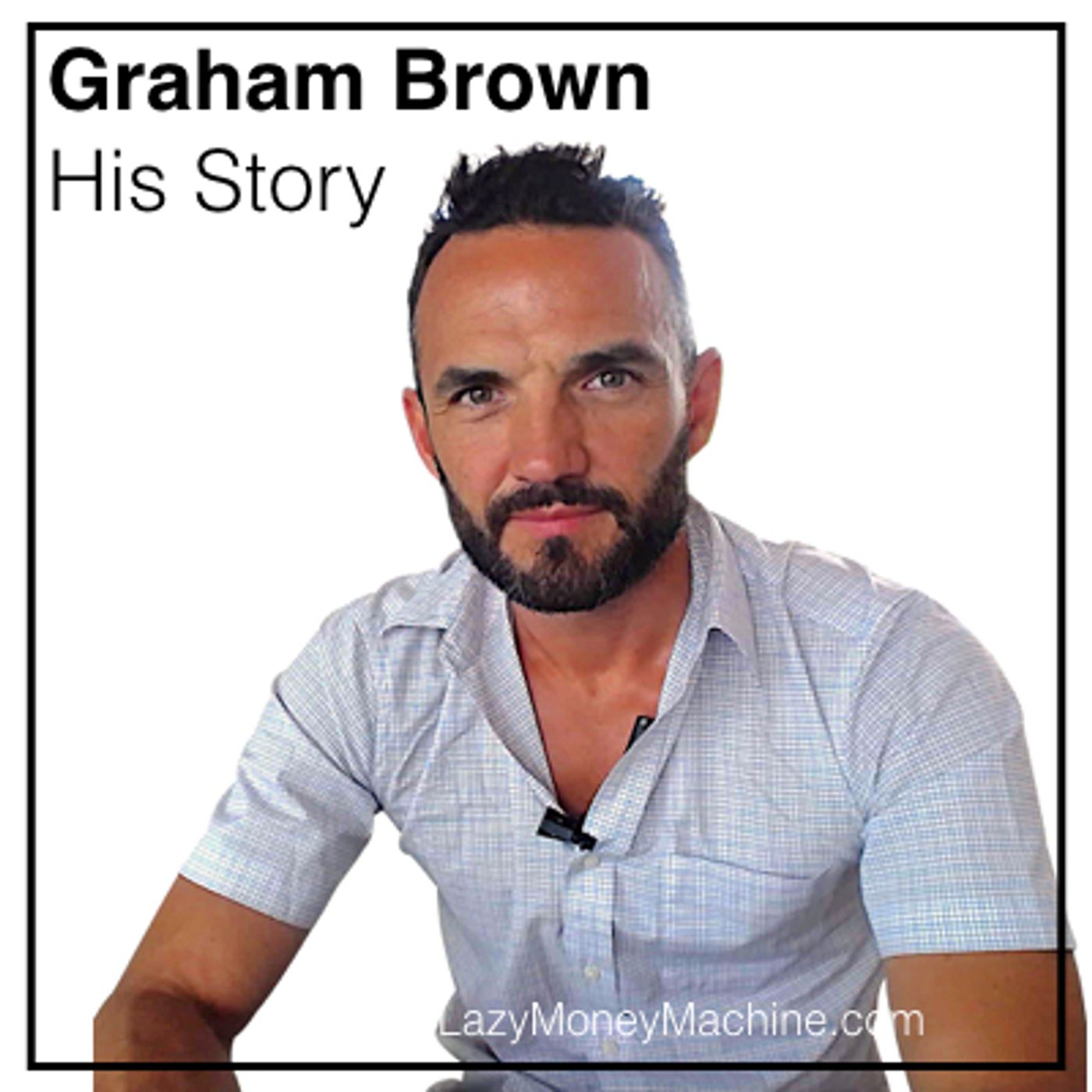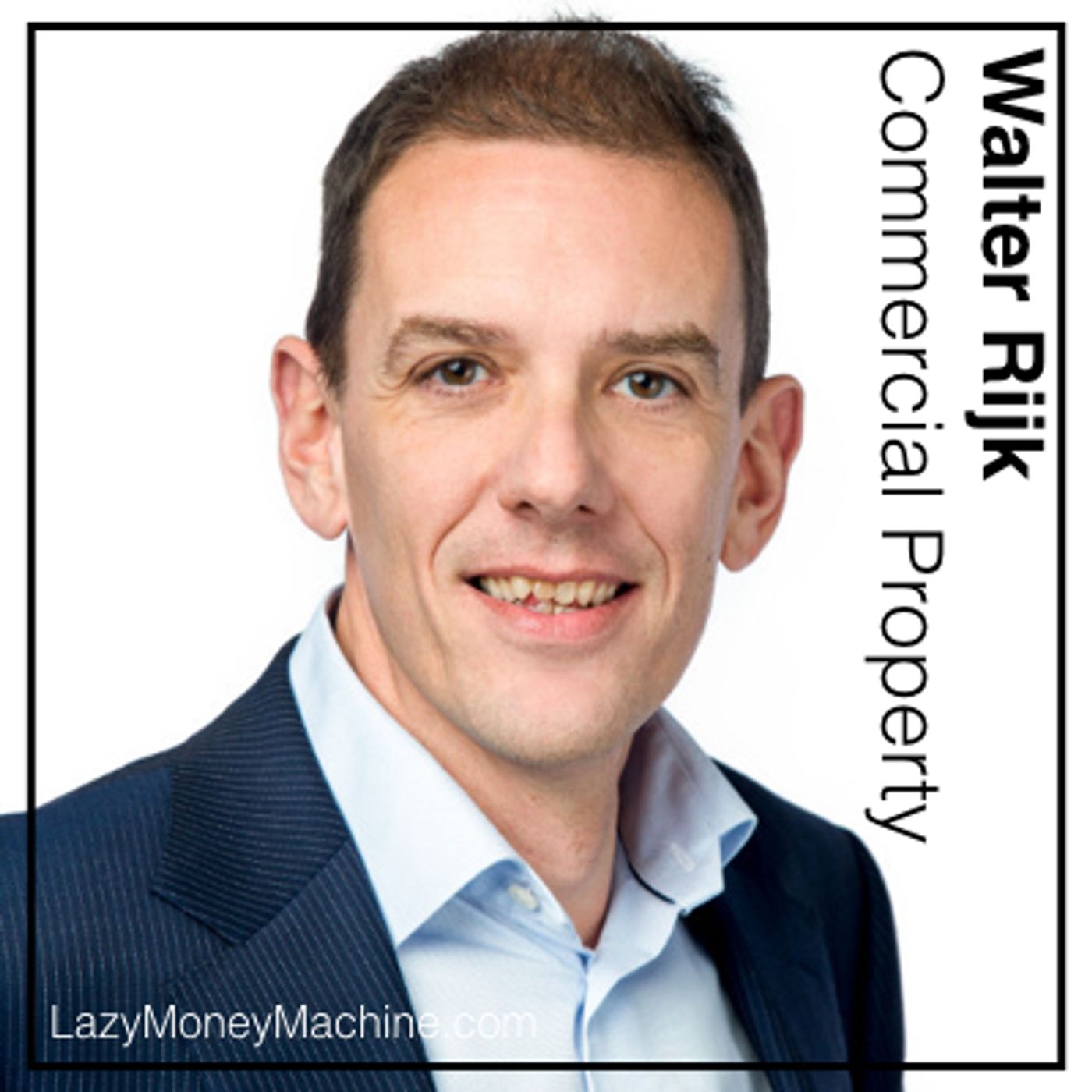Discover Lazy Money Machine
Lazy Money Machine

62 Episodes
Reverse
In this podcast we speak to Rodolfo Young who embodies the lazy lifestyle, living in Bali while running his speaking and coaching business. Rodolfo speaks about compounding. We know this term from investing whereby the interest on an investment get reinvested and therefore it is compounding your returns. However it turns out that compounding can be applied to many areas of our life especially learning. Join Erik in exploring the fascinating ideas of Rodolfo Young.
David explains his views on this statement and why it is important not to care too much what other people think. David explains what happened when he got vocal about the pandemic. Erik asks if this is linked to having self confidence. Self confidence is a magnifying glass if you have more self confidence it is easier not to worry about other peoples opinion. Also if you are more successful and older there are less repercussions for saying what you feel without filters. Tony Robbins: If it is not going to matter in 5 years don’t give it 5 minutes of your timeThe vast majority of people should not run a business. We talk about how the Spanish and Indonesian culture influenced us in being straight forward.If you are worried about what other people think of you it is going to influence the speed with which you take decisions. Finding your mission in life you need to get separate from other peoples opinions. Opiniated people trigger the fear of not being good enough in others.David elaborates on how conflicts can exists if we are too stuck to our thinking and how important it is to be genuine.
Pandemic Special00:00 - 00:08 PANDEMIC OVERVIEWDavid outlines where we are with the covid-19 pandemic and lock downs. David explains why we are seeing the last bit of this pandemic. We will have people with health problems, financial problems and relationship problems. How can we see this as something positive and make society better while creating some profits. For properties we will see the need for smaller units, multi family units and properties with good work from home facilities. 00:09 - 00:13Erik is discussing the situation in Indonesia and poorer countries, they will have to start opening up since the government does not have the money to keep everyone locked down. Erik's obeservation is that the limitation of freedom is causing a lot of issues. Erik outlines why our Lazy Lifestyle has actually trained us for lockdowns and why it therefor does not affect us at all and why we are still looking for opportunities.00:14 - 00:20David outlines how the limitation of travel has made him realize how much he misses speaking on stages.David outlines while countries like New Zealand will struggle. Financial consequences are going to be felt for decades. 00:21 - 00:40 MINDSETWe speak abouth why Mindset in this situation is so important. David explains why he got frustrated because of the fact that nobody could see what he saw based on factual information because most people are influenced by mass media progaganda. Being financially secure removes the fear of saying what you think and David thinks a lot more people should speak out. David discusses why he thinks that 'pivoting' is a wrong way to look at your business. If we sell a quality product we can keep selling that and not revert to lower value cheap products.00:41 - 1:00:04 OPPORTUNITIESHow does this situation create opportunities? David explains that we are in an asset bubble and that Commodities, Real Estate and Shares are the vehicles where money is going to be made and where value is going up, simply becasue the value of money is going down. It is going to create a very large division of wealth and young people are going to have more and more difficulties to create wealth at all.Erik speaks about a trend that is going to influence what markets are going to look like: The break up of family units. This means that in terms of property investing, family houses with a garden that can accomodate a garden office, shared accomodation with studios and small flats are going to in demand. David spots another trend: Social Housing, housing for unemployed people and why this is a great opportunity. Erik discusses with David how empty commercial office buildings could be great redevelopment opportunity to turn them into housing. The small businesses (coffeshops, cafees, small restaurants etc) are suffering really bad. There are very interesting opportunities in shares as well and David discusses some. 1:09:00 - 1:14:00 THE FUTUREIf we look close at the World Economic Forum and their agenda 21 we can see what is coming our way: a possible a cyber attack wherby our powergrid could be under attack. Reach out to your friends, there are a lot of people suffering.
David starts explaining by how it is possible to make money buying and selling in the current market which in New Zealand at the moment is very strong.David buys a property, does the necessary repairs and compliance work, and makes it ready for investors to take purchase. If the buyer does not renovate themselves, David’s team hands over all the quotes he has for the renovation together with the property so the buyer can do the work themselves. This way he takes the uncertainty out of the deals for the buyers/investors.We tend to focus on 2 very important levers in the property business:How to add value and how can we generate a cashflow out of the propertyWe discuss what is holding many people with cashback from going all out in property investing is the leveraging or lending part of the business. This is scary for some especially the slightly older investors. Once we get them over the fear of lending, we can leverage this equity into a cash flowing property portfolio.David has a story around Morals & Ethics that happened today. David had a contract on selling a property with a buyer and investor signed when he received 2 offers that were higher, One of them 40.000 more than the deal David had done with the buyer. David went back to the investor and split the difference of the 40k more on the deal. This way it is a win-win for everyone. Morally it was wrong to get out of the agreement and take the 40k extra profit.We discuss the morals & ethics in doing business and how if you not use this in doing business it will come back to you someday. Traces of what you do are around forever and can be found on the internet easily. How about masculine and feminine energy :-) what does that have to do with morals & ethics lets check in with David on this. Lastly, we talk about freely sharing knowledge and helping people and how doing good is coming back to us.
David doesn't work more than 3-4 hours a day BUT he spends a lot of time hanging out socially with other people. Some of these people are business related some of them are just friends. This is so important to nourish your relationships even more so now in the Covid lockdown situation. It is also very important to nourish the relationship with your children.David and Erik both like working with partners in business but they come with problems, they come with baggage. Also you need to realize when you are in the way of progress and remove yourself from the business.Erik puts it even more firm: if you are not aligned with your partners you need to leave the partnership but you need to remember that nobody is perfect and you need to manage your partnership. It is very important is to find out what values your (potential) partner has.David feels that culture changes once a company grows beyond a certain level of revenue. When things become more corporate David is no longer a good fit. In that case you need a predefined exit strategy for a partnership. We speak about doing business with family members and the pro's and cons of it.David speaks about how wife/husbands/lifepartners can mess up a business relationship. David thinks it is best to not share too much of the (negative) news of your dealings with your business partner. You can talk about the good things of your business relationship with your life partner.
Before we start off talking about this topic we will discuss why many people are letting external things like the weather, opinion of other people influence how you feel. Things happen for a reason start to accept that.Business is different from property, you are more emotionally attached to businesses, they tend to become like a baby and there are usually more people involved. This can prevent you from making objective decisions.Most people in property are paid based on results or services you don’t’ need permanent employees in a property business.Get mentors to get over your limiting beliefs around propertyDavid started with no money. It is a mindset issue David explains how he gets people out of these limited beliefs when he was mentoring people. The 2 things that are holding most people back:1.Fear that they are not enough2.I am not worthy3 type of investors1.Part timers on the side of their normal job2.Dreamers, no guts no money skilss3.Full time investors, not a very common thingOptions for people interested in property but don’t want to invest full timeStructured investment vehiclesREIT’s on stock exchangePrivate property funds / Trust 6-8% annual dividend 7-10 yearsSyndicationsAngel investor private investor David usually gives them a good return on their money because most of these deals are used Interest rate on their money (floating rate). David will charge a management fee as a project manager. And the profit will be split 30-7- to 40-60 in favor of the party that put the deal together. Erik & David don’t invest in things that we don’t understand and only in people we believe in. David charges interest rate on his money and a % of profit at the end of the deal.We discuss how you can start investing with an experienced property investor can be really rewarding. Businesses will create cashflow a lot faster than property will but property will get you there in the long run.
We have idolise being busy and are pushing our lives to the limit and it is taking it’s toll on all of us and on the world. Erik and David will discuss this today and see how this doesn’t fit with the lazy life style we promote. Documentary David Attenborough: A Life On Our PlanetBook: The top five regrets of the dying: Bronnie Ware
David is interviewing Erik about his past, property strategies and his plans for the future. It has been quite a while since Erik has spoken about this. You will also find out that the Lazy way sometimes means hard work....want to find out why, listen to this episode.
Erik introduces David Leon, the new co-host of the lazy money machine podcast. David is a property investor, mentor and dealmaker, living the lazy lifestyle in his beautiful home in New Zealand. David tells us what drives him and what he wants to to with the podcast. I am so excited to have David on board.Find out more about david here: https://www.wealthmentor.co.nz/david-leon.htmlhttps://www.lazyinvestorclub.com/And find us here: https://www.lazymoneymachine.comnew website coming october 2020
In this episode we discuss how we have build the Lazy Money Machine business, how we do the content and how we wrote the book. We also discuss partnerships in business. Lastly how do we measure success: The impact have on people……and we read Walter's beautiful message.“Today is the first day of my freedom of time and financial independence. Thursday I had a beautiful farewell reception at the company and yesterday it was my last day at the office. It still feels awkward and I guess it will take a while before I get used to is. In two weeks time my wife and I will be traveling to Equador, Columbia, Panama and Costa Rica for 3 months. After that I’ll start looking for new goals in my life without losing the freedom of time. Thank you Erik & Graham for giving the insight for a new life-style. “
Graham is getting ready to move his whole family to Thailand, he has done this regulary and it is part of his lifestyle. We discuss how focuss, or what you pay attention to is really important. If you focus on the fear of loss you cannot grow your wealth and your business. Erik & Graham share very personal stories about business situations that go bad and how changing the attention helps them get through it. And some discussions about the weather.Source article:https://hbr.org/2018/03/to-control-your-life-control-what-you-pay-attention-to
In property, a lot of things can go wrong and you have to deal with a lot of uncertainty. Erik and Graham discuss which uncertainties you need to deal with and how you can mitigate this with building buffers.
Graham walks us through investment strategies that work for Japan's diverse real estate property market, focusing on the outlying city of Fukuoka. Why would you want to consider a low-yield property market like Japan anyway? We talk about risk and currency diversification, and the dangers of having all your proverbial investment eggs in one basket (or market). You can buy a 1 bed apartment in Fukuoka Japan for as little as $60,000. We explore the purchase costs and potential yields from such an investment
Cedric is passionate about startups, block chain and owning just 64 things (all of which are black). How does Cedric manage his minimalist lifestyle of 64 things? How does he maintain some form of stability when he is constantly traveling? What kind of technologies and startups is Cedric actively involved in as a founder and angel investor?
Robert Kiyosaki (Rich Dad Poor Dad) always talks about the importance of being able to leverage OPM (Other People's Money). In this episode of Lazy Money Machine, we unpack Erik's development projects and how he's sourcing external finance. Erik walks us through his latest building project in Indonesia and shares advice on how he markets these projects to prospective investors. What are the challenges in raising OPM? Why is raising OPM an important skill and often the gap between an amateur and a professional investor?
Jasper is author of Get Paid for Your Pad - the definitive Airbnb guide. How did Jasper get his start in Airbnb? How did Jasper build an Airbnb business across multiple countries? Airbnb is an increasingly popular business to generate passive income for landlords, but what are pros and cons of this model compared to traditional property rental?Jasper: https://getpaidforyourpad.com/
Musician Tom Southerton jams with Graham about about property investment and building businesses across borders and time zones. Is the best tenant always the one who pays the most money? We trade landlord stories of how bad tenants can wreck your property business and what you can do to protect yourself from them. We take a look at alternative investment vehicles and wealth holders like precious metals and crypto currencies.
Graham tells us his background story and teaches the basics of investing. Many business owners think that their businesses will make them wealthy, they won't. Statistics show that most will end up making as much as they would have done if they stayed in the day job.The key to creating long term sustainable wealth lies in income producing assets, particularly passive-incomeBuild a lifestyle business that generates cash, invest that surplus cashflow into an asset-based investment business45: Lifestyle vs Investment Business, Graham’s story
Walter Rijk joins the Lazy Money Machine. We talk about how he got his start in commercial real estate property investing What is the challenge in growing a large, successful business? How do you manage the expectations of being "the boss"?What do you do when you want "out" but you've been "in" for so long? How does commercial real estate investing differ from residential real estate? What are the pros and cons of each? How do you finance commercial property deals?
We discuss how both Erik and Graham have a weakness on buying certain things for Erik it's electronics and audio equipment and for Graham it's bicycles. We discuss how important to is to collect experiences in stead of things in a lot of detail.


